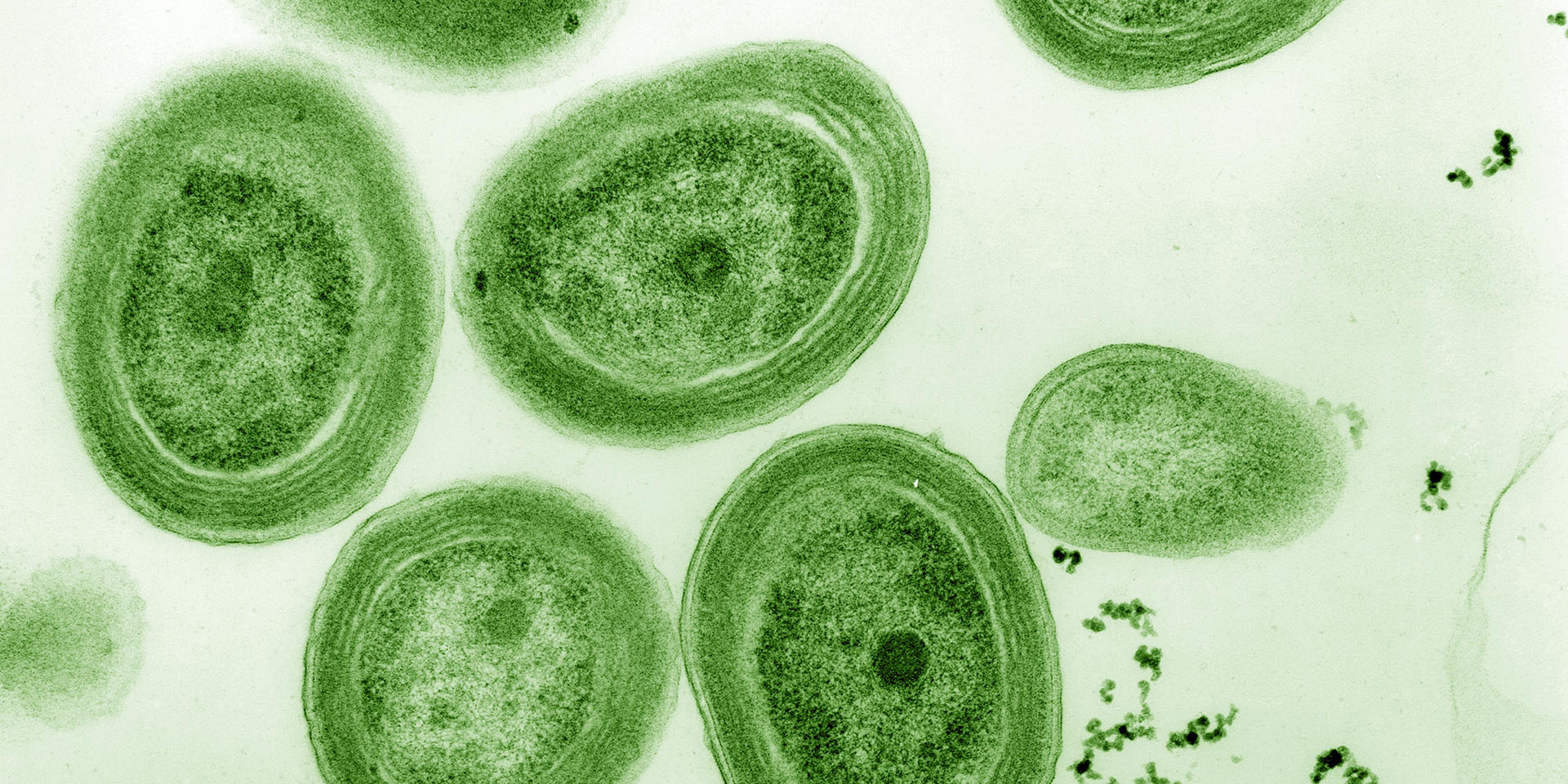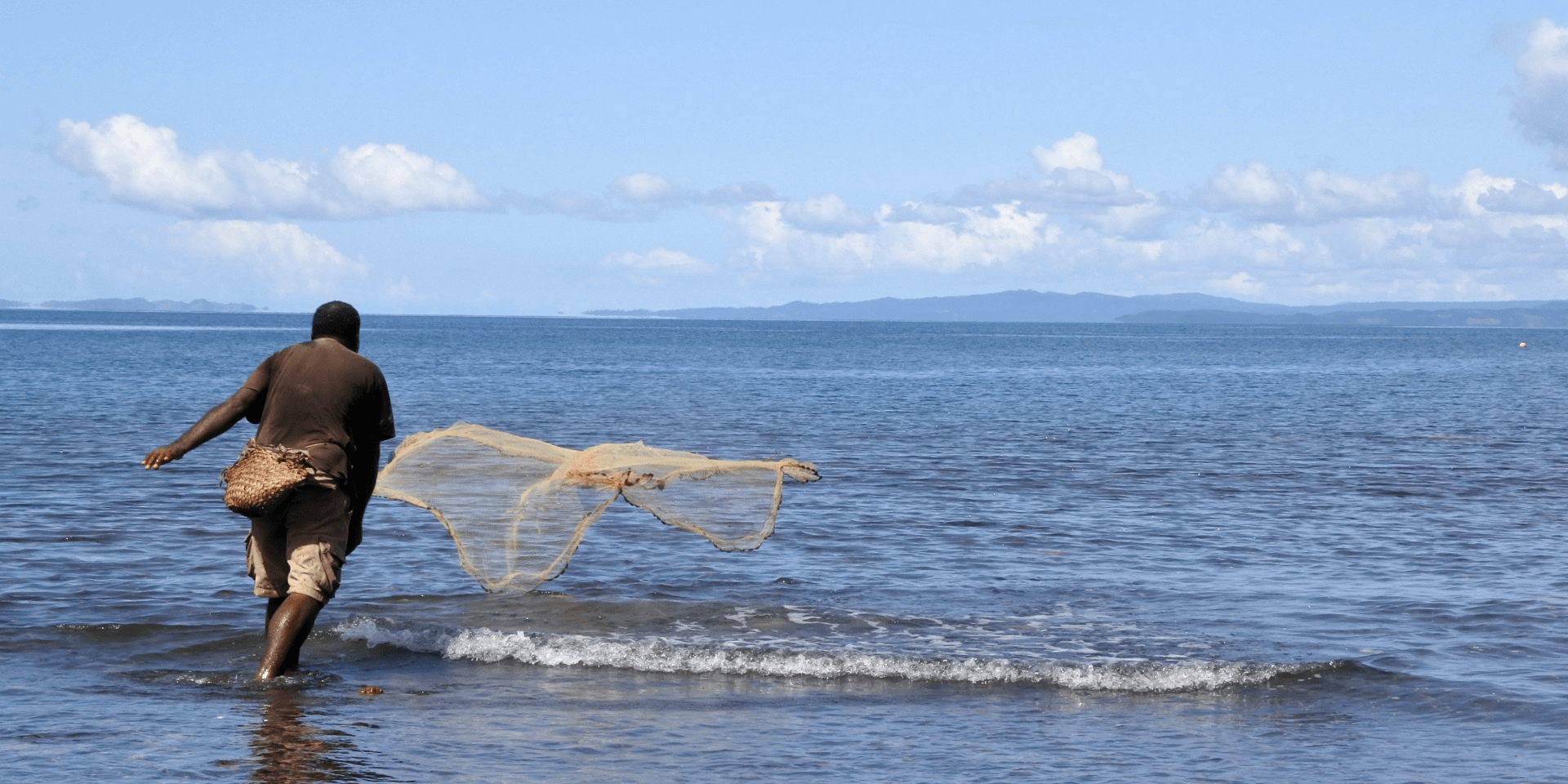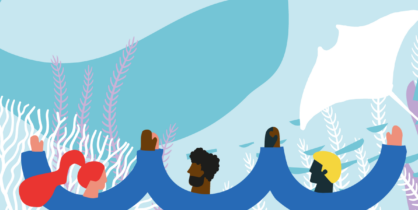Ocean Literacy: A Gateway to Sustainable Management of the Ocean
A conversation with the UN Special Envoy for the Ocean, Ambassador Peter Thomson on the importance of hope and action in addressing ocean issues.
Widely defined as “a comprehension of how the ocean influences us and how we influence the ocean,” ocean literacy has taken a pivotal place in furthering the sustainable management of the ocean and has gained more importance when referring to the successful implementation of such treaties as the Biodiversity Beyond National Jurisdiction (BBNJ), also known as the High Seas Treaty. Mikaela Martirosyan from REVOLVE talked with Ambassador Peter Thomson, UN Secretary-General’s Special Envoy for the Ocean to learn more.
What is the role of ocean literacy in the implementation of the UN High Seas Treaty, also known as the BBNJ Treaty?
There needs to be an understanding of what the High Seas Treaty is in the first place. For instance, having marine protected areas (MPAs) on the high seas has now been made possible thanks to the BBNJ Treaty, which of course will only be in full force once it is ratified. And the very best way people can fully comprehend the potential of the High Seas Treaty is through education. We need to bring this knowledge to our schools and universities to ensure the treaty’s potential is met.
To better illustrate the need for ocean literacy in school curricula, I like to refer to my logo, which is a prochlorococcus [a genus of tiny marine cyanobacteria]. I like to contrast my logo with the WWF’s highly successful panda logo. Human beings can relate to the panda, being a warm, cuddly, and playful animal about the size of a human. But the fact is that if pandas were to become extinct, we would continue to exist.
Take away all those names that human beings have put on the map, and you get down to what really matters: that there’s just one ocean.
On the other hand, my valiant logo prochlorococcus, is so small that people cannot see it. Prochlorococcus is the smallest photosynthetic organism on the planet and yet it produces 20% of the oxygen in the biosphere. Were it to go extinct, so would we. Pointing that out is meant as a wake-up call that we cannot continue our current ways of polluting, acidifying, and deoxygenating the ocean without consequence.
Did you learn about Prochlorococcus in school? I did not. And yet it is more fundamental to our existence than lions or pandas.

In your opinion, what is missing from school curricula and what needs to be done to achieve a better level of blue education?
In my view, it’s very deficient. Observing what my children and now my grandchildren are being taught, when it comes to the ocean things have not changed much. Geography was my main subject when I was at school, and what you were taught were the names of oceans, which is relatively unimportant information. Take away all those names that human beings have put on the map, and you get down to what really matters: that there’s just one ocean with many features. That’s the first thing you should be taught.
The reason it’s important to learn there’s just one ocean is for example the phenomenon of rising sea levels. If you think of the ocean as a big bathtub without an outlet plug, you appreciate that new water entering the bathtub has only one way to go, and that’s up. Therefore, a massive melting of the Greenland icesheet, for example, has existential consequences for an atoll country like Tuvalu, on the far side of the world, or indeed for river delta countries such as Bangladesh.
Do you think that a sense of doom and gloom has made us immune to that? Do we need to find an alternative approach to shift the narrative and reach out to people?
I’m a grandfather and a couple of my grand-daughters are young teenagers. When you’re a child you don’t really understand the bad news, but when you’re a teenager you learn it through what you hear and read. These days unless you’re locked in a cocoon of gaming or TV fantasies, you just can’t avoid it. The bad news is that we’re on a planetary trajectory towards somewhere near 3 degrees Celsius global warming by the end of this century, which is within their lifetimes. We’re talking here about a world of devastating storms, terrible floods, widespread droughts, rising sea levels, and fires at a scale that we’re seeing the beginnings of now which will be far worse as those temperatures inexorably rise.
The genius of our species lies in our qualities of innovation and sharing.
Knowing that this information comes from our most trusted sources, like the Intergovernmental Panel on Climate Change (IPCC) and the World Meteorological Organization, for a young person these future forecasts can be very depressing.
I spend a lot of my time thinking about how to interpret this information for my grandchildren, and indeed for all young people. Of course, hope is the big thing. But not only hope, the need for us all to be taking positive action is the way ahead.
Can we make the necessary transitions and adaptations? My answer is absolutely yes. Always remember that the genius of our species lies in our qualities of innovation and sharing. Over the eras, these qualities have been the foundation pillars of our civilizations.

We have come from being cave people to explorers of outer space in a very short time and that is because of the innovative brilliance of our species. And the sharing element has been the basic bond of societies, without which we would be nowhere. Those two capabilities of humanity are heightened in times of crisis, thus since we are now facing a triple planetary crisis, we should expect better sharing and better innovation. I see signs of that already happening.
Looking to the future, young people should be planning for careers in the sustainable blue economy in sectors such as the greening of shipping and offshore energy. We know that new forms of food can come from the ocean.
It’s all about ocean literacy, investing in science, trusting the science, and acting accordingly.
What will they be and who will design and produce them? Young professionals and entrepreneurs of course. Sustainable aquaculture is going to provide a huge part of human nutrition, while the fisheries industry needs to be greened and decarbonized. Changes are afoot. All these things present good career opportunities.
So first of all, I would say don’t worry that there won’t be jobs. To make the necessary transitions, we’ll be doubling up on the need for training, brain power and muscle power.
How critical is ocean literacy for the sustainable management of the ocean and how does it fit into the international agenda for sustainable development?
It is pivotal. When we talk about literacy, apart from teaching, we are talking about understanding. We have to understand what’s going on around us, as it’s all changing very rapidly. Thanks to global warming, ocean currents are changing, marine ecosystems are on the move, coral is dying.
I come from Fiji in the south-west Pacific. Tuna-catch licensing is really important for the revenues of Pacific Island countries. In a place like Tuvalu, something like 90% of the foreign exchange is from tuna licensing. But we are advised by our scientists that three of the five commercial species of tuna in our region will be gone by the end of this century, because of the changing ocean conditions. Obviously, this has major consequences for the economies of the region.
We have to understand these consequences to be able to plan before they eventuate. That is all about ocean literacy, investing in science, trusting the science, and acting accordingly.

What role do marine protected areas play in conserving ocean biodiversity and how does ocean literacy tie into that?
The great news is that we have now all agreed to the Global Biodiversity Framework, as adopted last December 2022 in Montreal under the UN Convention on Biological Diversity. This has upped the global target for marine protected areas from 10% by 2020, to 30% of the planet to be protected by 2030. A proportionate part of that 30% will be marine protected areas since the ocean covers over 70% of the planet’s surface.
You cannot expect the poorest people in the world to cover the costs of the establishment and governance of these huge marine protected areas that just happen to be in the EEZs of their countries.
In places like Fiji, most of the hotels already have no take-zone marine protected areas associated with their properties. This makes good economic sense for all concerned, including the hotel guests who are paying to see beautiful nature.
But when it comes to large MPAs, there are many who see the logic in flexibility of rules. Most coastal communities understand the need for MPAs and for many indigenous communities, seasonal marine protected areas have been in existence for thousands of years. But these communities have also to feed their children, and they rely on fish from the sea for sustenance and income on a daily basis. That is why there has to be flexibility and provisions in some of these marine protected areas for the local populations to have access to marine resources.
The other aspect of marine protected areas that I think people need to understand is that you cannot expect the poorest people in the world to cover the costs of the establishment and governance of these huge marine protected areas that just happen to be in the EEZs of their countries. We should not expect these communities to carry that burden on their own. Understanding that is also part of ocean literacy.
